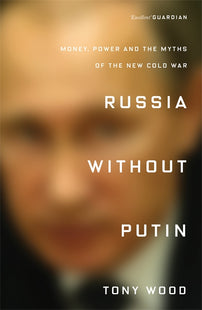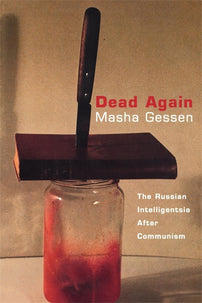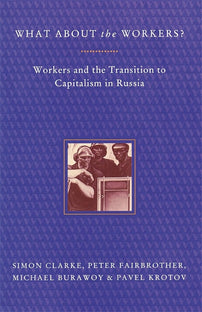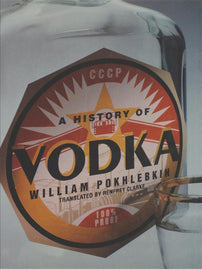Stalinism in a British Accent
HBO's new miniseries Chernobyl, a gloomy and lyrical historical drama that tells the story of the catastrophic explosion of a nuclear power plant in Soviet Ukraine in 1986, has taken the unusual decision to cast a nearly all British cast of actors. Why does Stalinism seem so plausible in a British accent, and what does that say about the parallels between contemporary Britain and the USSR?

To anyone who has ever lived in Britain – much less grown up here – the voice of Viktor Bryukhanov, a power plant manager in HBO’s new miniseries Chernobyl, is instantly recognizable. It is squeaky, hoarse and secretarial. It carries a hidden menace that is cloaked in jauntiness. Bryukhanov, played by Con O’Neill, an actor from a small town in the Southwest of England, spends most of the first episode in deep denial about what’s going on. The reactor can’t have exploded. The radiation readings are faulty. The first responders, struck down by radiation poisoning and vomiting have merely drunk contaminated water. O’Neill, as Bryukhanov, uses his English accented voice to produce a new reality - not his own, but one that obeys the logic of the bureaucratic structure in which he is embedded.
Chernobyl is a gloomy and lyrical historical drama that tells the story of the catastrophic explosion of a nuclear power plant in Soviet Ukraine in 1986. It depicts the hours and days after the event, the internal debates over evacuation orders, the containment of information, the hideous suffering of the workers and firefighters with acute radiation sickness and the increasingly desperate attempts to extinguish the nuclear blaze. The show is infused with a silent, existential dread, depicting a gathering, invisible menace that threatens to consume an entire continent. It renders a world where the worst-case scenario has already happened and the only options left are containment and mitigation.
Notable for a show set in the former USSR, Chernobyl’s cast is made up of mainly British-accented actors. In an interview, Craig Mazin, the show’s creator, said that they decided early on that using forced Russian accents would sound silly and detract from the drama of the show. He also decided that American accents would sound too out-of-place. Instead, the show hired only non-American, English speaking actors, with the result that most of the cast are British. Jarred Harris (Mad Men’s Lane Pryce) plays an earnest and introspective scientist who argues against senior officials with a cautious sincerity. Adam Lagatis, originally from Chorley in Lancashire, plays a firefighter caught up in the disaster, compelled by the authorities to spray useless water onto the gaping, exposed reactor, his face red and cracking under its radioactive glare.
In Britain, speech is a way of placing people quickly and reliably in a densely layered social order. British people’s voices betray their class, region, education and a whole host of other subtle traits that reveal how someone relates to and has been shaped by the world outside themselves. If people in Britain want to remake their subjectivity, to conceal their past or jostle for a new position in the social hierarchy they often begin by changing their voice. The English accents in Chernobyl are varied by class and region. In a nice touch, the miners recruited from a remote corner of the USSR to tunnel beneath the collapsing plant, are all Scottish. While the scientists speak in voices that seem rich, plummy and expensively educated, the politicians and bureaucrats have a more diverse set of accents. With the Soviet political elite having been permeated by generations of revolutionary working class social mobility, this makes a lot of sense.
Chernobyl is probably the most popular representation of post-war Soviet life on film since Armando Iannucci’s 2017 screwball comedy, The Death of Stalin. Here too, half the cast are British and the familiarity of their voices is startling. Witness Lavrentiy Beria, the psychopathic, murderous pedophile who was chief of Soviet internal security under Stalin, played by the stage actor Simon Russell Beale, who was born in imperial Malaya but raised in London. At one point Beale, as Beria, is casually distributing lists of citizens condemned to death to waiting NKVD agents. Like Bryukhanov, his voice is officious and distracted, conditioned by a bureaucratic logic that far exceeds his own charisma. Beria pauses and points at the list: “Shoot her before him and make sure he sees. Oh and this one. Um… kill ‘im, take ‘im to his church, dump ‘im in the pulpit. I’ll leave the rest up to you.”
If I close my eyes I hear my school teachers. I hear train conductors announcing ticket checks. I hear the people who answer the phone when my internet goes down. I even hear myself when my students make reasonable but unsatisfiable requests. Stalinism spoken in a British accent rings true. It makes profound sense. But why?
One answer would point towards the writings of the late cultural theorist Mark Fisher. Fisher argued that the British administrative state is in the grip of what he called “market Stalinism.” With most of Britain’s welfare state having been privatized since the 1980s and 1990s, what remains in the way of schools, hospitals and universities have been forced to compete against one another in a complex mesh of league tables, metrics and individual performance reviews. Regulatory bodies with acronyms flash into existence then quickly disappear. These practices, Fisher argues, resemble the ferocious and conspicuous apparatus of targets, incentives and failed plans that characterized Soviet industrialization.
Could it be that Soviet authoritarianism feels so eerily perfect when spoke in an English accent because British people spend their lives in bureaucracies that, in some very abstract level, resemble those of the Soviet Union? Britain in 2019, with its decaying infrastructure networks, its stalling growth, its creeping environmental dread, its dysfunctional political caste and its maddening bureaucratic networks, orientated towards symbols of achievement rather than achievement itself, does not feel as remote from 1980s Soviet Ukraine as it maybe once did.
Indeed, from the perspective of 2019, Russia and Britain’s histories do not seem all that different. Both countries are former empires whose respective paths to modernity tore through places like the Ukraine and India, the Caribbean and Central Asia, extracting labor and resources and leaving famine. Both countries have turned their respective victories in World War Two into founding mythologies, manufacturing false continuities over three generations of massive upheaval and decline. Both countries in recent years have seceded from the postwar global order and are attempting to reimagine it on their own terms. Britain even had its own nuclear power plant disaster. The fire in Britain’s Windscale power plant in Cumbria in 1957 was nowhere near as catastrophic as Chernobyl, but it did result in widespread environmental damage. Milk supplies in the area were deemed contaminated and temporarily suspended. The subsequent radiation leak led to more than 200 additional cases of thyroid cancer among local residents, none of whom - unlike in the Ukraine - were evacuated.
The fact that Chernobyl invites these comparisons is mostly inadvertent. Through the heroic figure of Valery Legasov, a scientist who endangered his life by reporting on the widespread failings of the Soviet nuclear industry, the show has a rather simple political message, one that has become a familiar refrain: “Trust experts and scientists. There is an inherent value in truth that transcends politics.” In spite of this sanctimoniousness, however, the British accents of Chernobyl tell a different story. They begin to allow us to move beyond an understanding of Russia as radically alien, a mysterious and pathological state that is nihilistically laying waste to the global order. Likewise, they let us see Britain differently, taking away some of its sheen of twee and placid exceptionalism.
The Russian writer Svetlana Alexievich, who spent decades interviewing the victims of Chernobyl, argued that the catastrophe scrambled our sense of historical time, leaving contaminated scars in the earth that will endure for millennia. The disaster points to a new kind of future: “besides the challenges of Communism, nationalism and nascent religion which we are living with and dealing with, other challenges lie ahead: challenges more fiendish and all-embracing although still hidden from view.” Similarly, Stalinism in a British accent allows us to consider a new reality not shaped by the absolute distinctions forged by decades of Cold War. With its British accents, Chernobyl inadvertently suggests that while the exact route may have been different and they may have moved at different speeds in different vehicles, the histories of Russia and Britain have been heading in the same direction.
Sam Wetherell is a historian of Britain and the World based at the University of York. He is currently finishing a book about how the built environment shaped modern Britain.
[book-strip index="1" style="display"]


